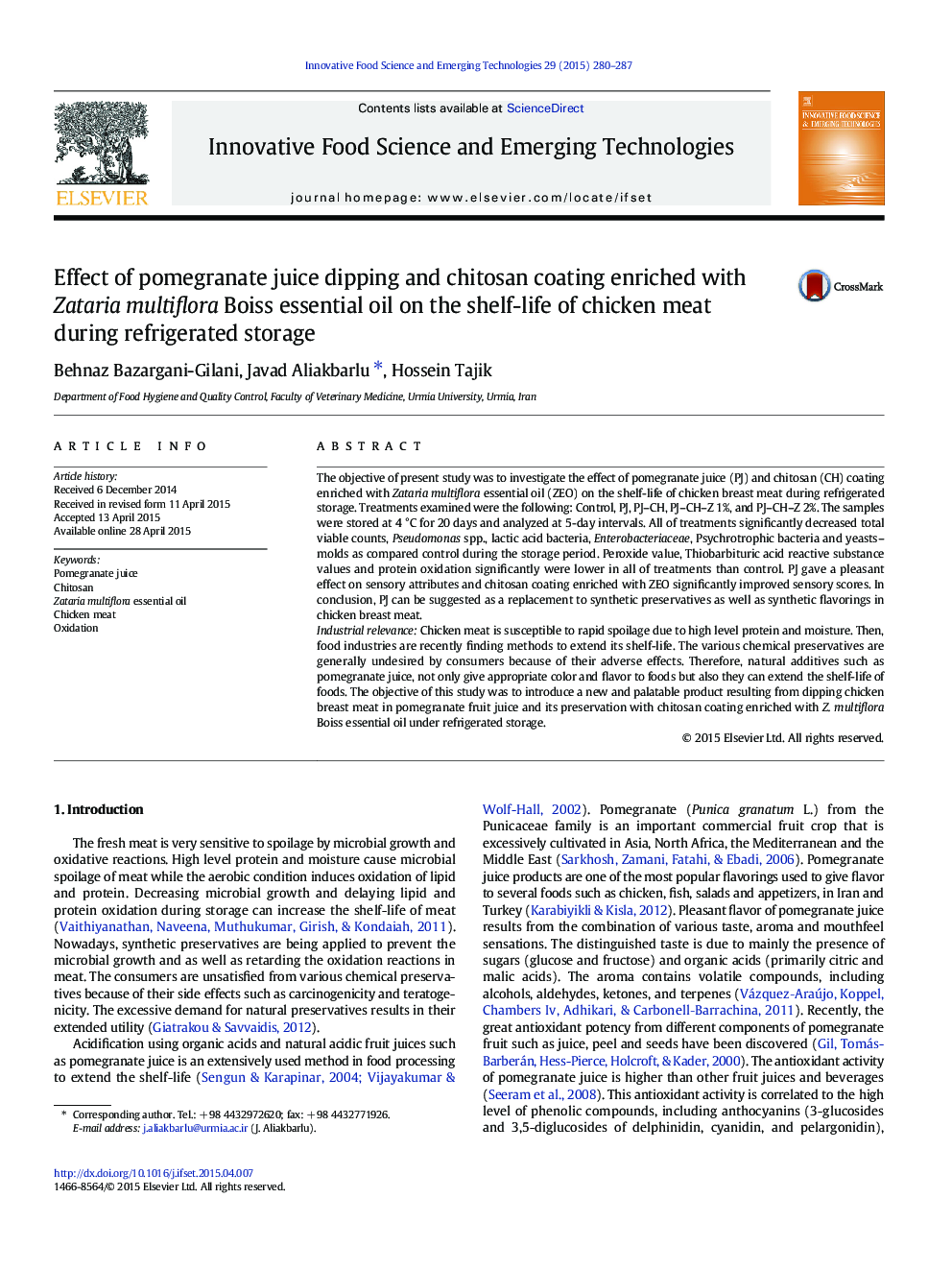| کد مقاله | کد نشریه | سال انتشار | مقاله انگلیسی | نسخه تمام متن |
|---|---|---|---|---|
| 3978762 | 1257298 | 2013 | 8 صفحه PDF | دانلود رایگان |
عنوان انگلیسی مقاله ISI
Prise en charge des métastases hépatiques synchrones d'origine colorectale
دانلود مقاله + سفارش ترجمه
دانلود مقاله ISI انگلیسی
رایگان برای ایرانیان
کلمات کلیدی
موضوعات مرتبط
علوم پزشکی و سلامت
پزشکی و دندانپزشکی
تومور شناسی
پیش نمایش صفحه اول مقاله

چکیده انگلیسی
At time of diagnosis, 10 to 25% of patients with colorectal cancer present synchronous liver metastases. The treatment of such patients remains controversial without any evidence based organization. Therapeutic sequences are discussed including chemotherapy, colorectal surgery, liver resection and even radio-chemotherapy for some rectal cancers. In case of resectable liver metastases, preoperative chemotherapy offers the advantage of earlier treatment of micro-metastases as well as evaluation of tumor responsiveness, which can help shape future therapy. In this setting, different surgical strategies can be chosen (classical staged procedures with colorectal surgery followed by liver surgery, simultaneous resections or liver first approach) depending on the importance of the primary and metastatic tumors. The literature remains limited, but the results of these strategies seem identical in term of postoperative morbidity and long-term survival. Staged procedures are preferred in case of major liver resection. Location of the primary tumor on the low or mid rectum will necessitate preoperative long course chemoradiotherapy and a more complex multidisciplinary organization. For patients with extensive liver metastases, non-resectability must be assessed by experienced surgeon and radiologist before treatment and during chemotherapy. In this group of patients, improved chemotherapy regimen associated with targeted therapies and new surgical strategies (portal vein embolization, ablation, staged hepatectomiesâ¦) have improved resection rate (15 to 30-40%) and long-term survival. Treatment organization for the primary tumor remains controversial. Resection of the primary to manage symptoms such as obstruction, perforation or bleeding is advocated. For patients with asymptomatic primary a non-surgical approach permits to begin rapidly chemotherapy and obtain a better control of the disease. On the other hand, initial resection of the primary may avoid complications and the need for urgent surgical procedures. Both of these strategies are practiced without definitive evidence supporting one treatment option over the other.
ناشر
Database: Elsevier - ScienceDirect (ساینس دایرکت)
Journal: Bulletin du Cancer - Volume 100, Issue 4, April 2013, Pages 363-371
Journal: Bulletin du Cancer - Volume 100, Issue 4, April 2013, Pages 363-371
نویسندگان
Aurélien Dupré, Johan Gagnière, Yao Chen, Michel Rivoire,